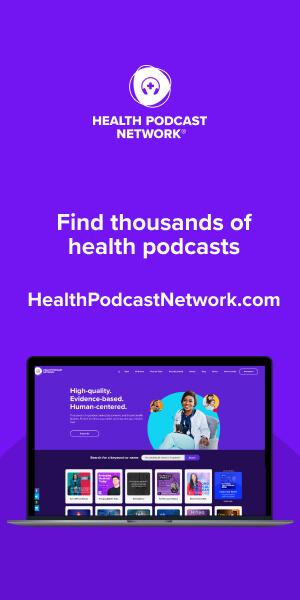One-on-One with Marcus Schabacker M.D., PhD, President and CEO, ECRI Institute
During this year’s MedCityInvest Digital Health conference, Demi Radeva, one of Digital Health Today’s global ambassadors, had the chance to sit down one-on-one with Marcus Schabacker M.D, PhD, President and CEO of ECRI Institute. ECRI Institute is an independent nonprofit organization authority on the medical practices and products that provide the safest, most cost-effective care, not only in the U.S. but also internationally. Read on to learn more about Marcus’ point of view on the types of evidence that are critical for digital health startups to create as they try to commercialize their solution and get greater buy-in from investors and government organizations and the role of ECRI in ensuring patient safety through technology evaluations.
Q1: What role does the ECRI Institute play in healthcare?
Marcus: ECRI Institute is a 50 year-old not-for-profit organization and is membership-based. ECRI provides multiple types of services for its members which include a mix of individual hospitals to hospital systems, payers, and the government to name a few. ECRI is also internationally based in Dubai, London, and Kuala Lumpur.
We offer technology evaluations, supply chain consulting, and we are also considered the largest patient safety organization in the United States. In terms of technology evaluations, we have the only independent technology evaluation laboratory in the U.S. In 2017-18, we performed about 150 evaluations, which led to 55 voluntary changes by the companies whose products we independently tested.
In terms of supply chain intelligence perspective – ECRI helps with price comparisons, tool effectiveness, recall management, usability analysis, and much more. Lastly, we recently established the ECRI Guidelines Trust, a free repository of clinical practice guidelines as a replacement for the National Guidelines Clearinghouse which closed in 2018.
Our Guidelines Trust assesses the evidence and processes used to develop guidelines by developers around the globe. We work closely with the FDA, but we are not an enforcement arm of the FDA.
Q2: Who does the work? How do you prioritize the work? And who pays for this research and evaluations?
Marcus: We have nearly 500 full-time employees. We have 70 full-time employees who are PhDs, scientists, clinicians, who are dedicated to running these analysis, research, and evaluations. We also have engineers based in Kuala Lumpur, so we can evaluate medical technology that is bought and sold outside the United States.
The work is prioritized annually and it’s based on a combination of requests that come in from our members, as well as our own independent research of the literature that shows us which important topics we should focus on. In terms of who pays, there are multiple ways to fund the work – memberships and grants are the predominant methods.
Q3: The NHS recently published new evidence guidelines for digital health startups. In your opinion, who should be responsible for setting such guidelines in the U.S.? If I’m a digital health startup – who should I look to for this type of guidance?
Marcus: 19-20 years ago, I published an article called the 99% dilemma. In medicine, we think 99% safety record is acceptable. It is actually not. If an airline would operate with 99% safety, that would mean one unsafe landing a day. So 99% is not acceptable and somehow, we need technology’s support to help get us to 100%!
This is where a huge opportunity lies for digital health technologies. But on the other hand, therein lies huge risk. A lot of digital health companies’ founders do not come from a healthcare background. Thus, they are not used to a rigorous validation process. Proper clinical evaluation is needed in order to prove effectiveness and to prove that there is no harm being done.
If we take AI for example, we often don’t know what’s happening in the black box. So how do we validate it? This leads to the argument that a lot of this technology is just helping with decision support and not actual decision making, thus, it should not be held to the same standard and level of evidence as a medical device would for instance, or a pharmaceutical treatment. But if we take a decision support tool, such as Google Maps, for example, the results of a misguided route navigation are not fatal, while, the results of using digital health technology for clinical guidance in a healthcare setting may very well end in someone’s life or death.
Unfortunately, our current processes for evaluation are not good and for reasons which there is not a lot of control over – for example, not being able to get enough statistically relevant numbers due to limited population testing pools (e.g. rare diseases). Therefore, we need better post-market surveillance of technologies and to monitor how those technologies behave in the real world. We need someone independent to be performing this analysis and gathering the evidence. Otherwise, there will be bias on all fronts – by the clinicians, regulators, company, etc.
Q4: What role does digital health play when it comes to providing the best medical care today?
Marcus: Today, I think digital health helps us think differently and it helps us break existing molds. One of the big issues we have in medicine is patient compliance. But if we have the right technology at home, you no longer have to be in a clinical setting to stay compliant.
In the future, digital health will help make health care safer, more cost effective, and more efficient. It will also help us bridge the gap between our current human focused provider system to a more technology driven system, where a lot of the repetitive tasks can be automated. Six out of 10 workers in healthcare today, don’t touch a patient in the U.S. And our survival rates are some of the lowest as compared to the rest of the world.
Technology can help solve for this with ensuring better adherence and establishing proper feedback loops. However, for this to work, we, in the medical profession, must be much more open to questioning how we do things. Technology has the opportunity to act as an innocent bystander and help us get instantaneous feedback when we aren’t performing at 100%. It can help physicians get visibility into where they need to improve in a much more immediate fashion than what they get today.
Q5: What should digital health innovators focus on? Having the best, newest latest technology in their solution, or robust evidence, or something else to help them get reimbursed for their solution?
Marcus: It needs to be safe. It needs to provide clinical advantage. And it needs to be at least as good, if not better, than current solutions. It shouldn’t disrupt current workflow, unless it simplifies it and makes it better. There must be a really good reason why a hospital should change their workflow.
Do us all a favor, and have a rigorous validation process before you bring your solution to the marketplace. I don’t think anyone has ill intentions, but you should be aware and familiar with the expectations of the medical world if you are innovating in it. If you are designing something someone uses on a patient, even if it is just system support, it can have pretty dramatic consequences.
Lightning Round
1. What is a saying, quote or phrase that motivates you?
Make the world a better place. In my instance, a better place is defined as a safer place for patients.
2. What book do you recommend to our listeners?
Nelson Mandela: Long walk to Freedom
3. What is the tech that makes her life better and easier and keeps you healthy?
Smartphone. I couldn’t live without it.
4. If I give you a check for 5 million where would you invest it and what health technology would invest today?
Unfortunately, that’s not a lot of money for today’s world… I spent years in medical device industry, and spent millions of dollars trying to make meaningful contributions. I would say, I would invest in antibiotic resistance – that’s a big problem, where the incentives don’t exist for investment in the space by the current players. It is becoming increasingly important, yet, it’s totally underestimated problem. If you look back on history, from a medical perspective, the one thing that dramatically changed outcomes, was our ability to treat infectious diseases. We are robbing ourselves of that step by step.





